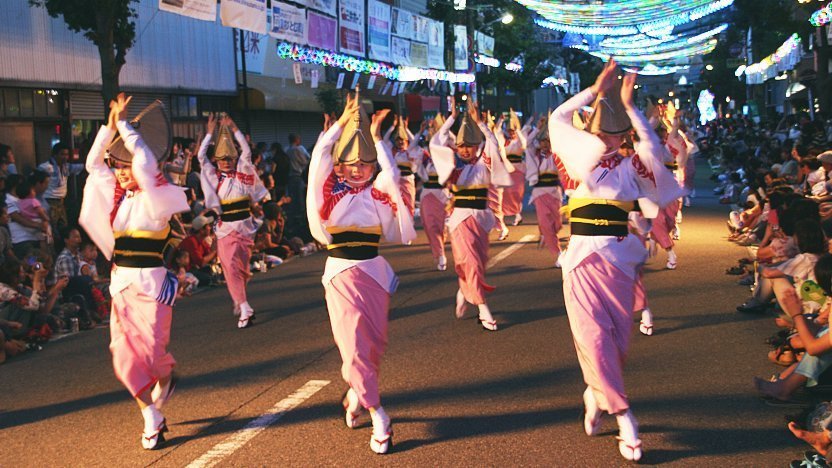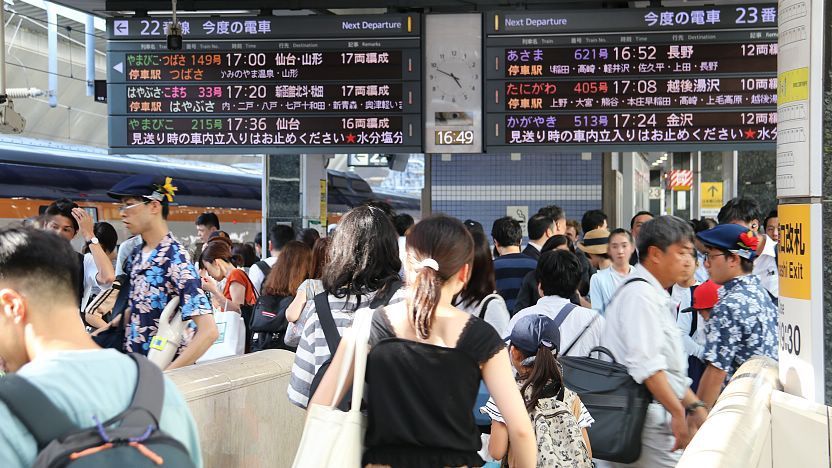Obon

Obon (お盆) is an annual Buddhist event for commemorating one's ancestors, whose spirits are believed to temporarily return to this world in order to visit their relatives during Obon.
Traditionally, lanterns are hung in front of houses to guide the ancestors' spirits, obon dances (bon odori) are performed, graves are visited and food offerings are made at house altars. At the end of Obon, floating lanterns are put into rivers, lakes and seas in order to guide the spirits back into their world. The customs followed vary strongly from region to region.
Obon is observed around the 15th day of the 7th month of the year, which is July according to the solar calendar; however, it roughly corresponds to August according to the formerly used lunar calendar. As a result, Obon is observed mainly from August 13 to 16, although in some areas it is also observed in mid July.
The Obon week in mid August is one of Japan's three major holiday seasons (alongside New Year and Golden Week), accompanied by intensive domestic and international travel activities and increased accommodation rates. In recent years, travel activitiy in mid August has become somewhat more spread out and less concentrated, but it is still considerable on certain days.
Traffic situation - Obon 2025
In 2025, the peak of the Obon travel season is anticipated to take place between August 9 and August 17. The busiest days are expected to be August 9, 10 and 13 with people leaving big cities and August 16 and 17 with people returning to the big cities.

Questions? Ask in our forum.


